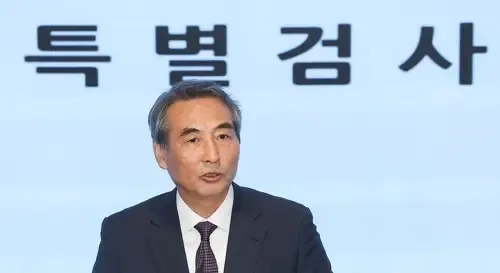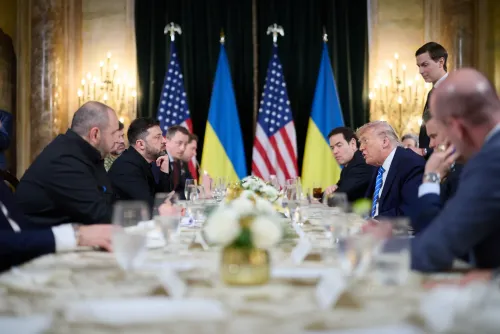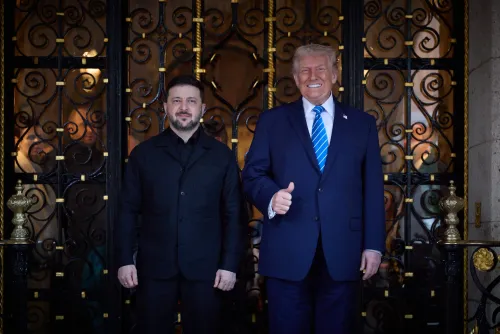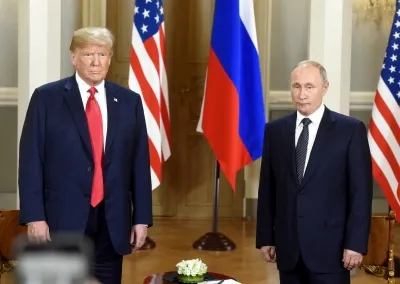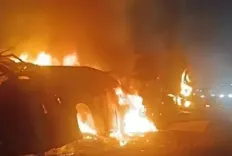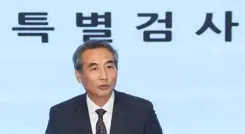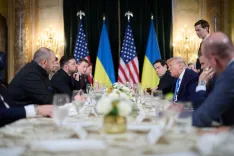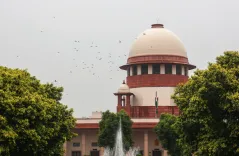Is the EU Trying to Revive Dialogue with Russia?
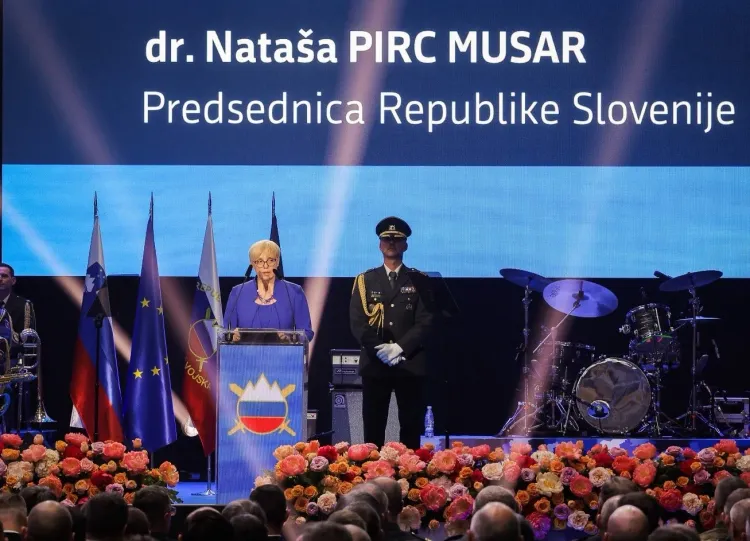
Synopsis
Key Takeaways
- The EU is contemplating reopening dialogue with Russia.
- Military spending is rising, impacting social welfare budgets.
- A group of experts may be formed to facilitate quiet diplomacy.
- Member states like Hungary and Slovakia are not fully aligned with the EU's anti-Russian stance.
- Slovenia emphasizes the need for continued support for Ukraine.
Ljubljana, May 26 (NationPress) In the wake of escalating tensions following the Russia-Ukraine conflict, and amidst US President Donald Trump's calls for peace, the European Union is reportedly gearing up to re-establish direct communication with Moscow, as disclosed by Slovenian President Natasa Pirc Musar.
In an interview featured in Politico’s Brussels Playbook newsletter, President Musar voiced her apprehension regarding the bloc's increasing military expenditures, which are reportedly straining the social welfare budgets of numerous member states.
Her assertion about the potential resumption of dialogue is based on a recent discussion with European Commission President Ursula von der Leyen during a visit to Brussels. Musar suggested the formation of a group of "wise individuals" to initiate "quiet" diplomacy with Russia as a precursor to more formal negotiations.
Musar indicated that she had directly addressed the matter with von der Leyen, who allegedly affirmed that "they are working on that". However, von der Leyen has yet to confirm this possibility.
Since the onset of hostilities, the EU has cut ties with Russia and imposed extensive sanctions. Musar acknowledged that this severing of relations was one of the bloc's most significant "errors".
She further pointed out that not engaging with member nations like Hungary and Slovakia, which do not align with the anti-Russian stance, has negatively affected the EU’s political influence.
According to Musar, the EU must prioritize being included in future negotiations alongside the US, Russia, and Ukraine. She emphasized that maintaining dialogue with Moscow is essential, even if peace talks regarding Ukraine have "yet to yield results", insisting that the EU should pursue "dialogue, dialogue, dialogue".
On the matter of rising military expenditures, she noted that such spending should not compromise social protections. "Every nation must tread carefully in this regard, ensuring that social welfare is not undermined," Musar remarked, adding that citizens are concerned about the potential sacrifice of social programs for military needs.
As reported by RT, several EU nations, including France, Germany, and Belgium, have announced reductions in social support programs, citing budget deficits and increasing debt. Last week, EU Ambassadors approved a €150 billion ($169 billion) debt program to finance the bloc’s continuing militarization efforts.
This agreement will enable member states to bypass standard voting protocols in the European Parliament to access low-interest debt for military procurement. Some EU nations have suggested they could utilize this program to extend additional military support to Kiev.
However, President Musar condemned the ongoing Russian assaults on Ukraine, which Moscow refers to as "retaliatory". She stated, "The brutal assault from Russia on Ukraine does not pave the way for the much-needed peace. Innocent lives are lost. This is unacceptable. Slovenia stands in solidarity with Ukraine and is unwavering in its commitment to uphold its sovereignty and territorial integrity." @SLOinUKR


